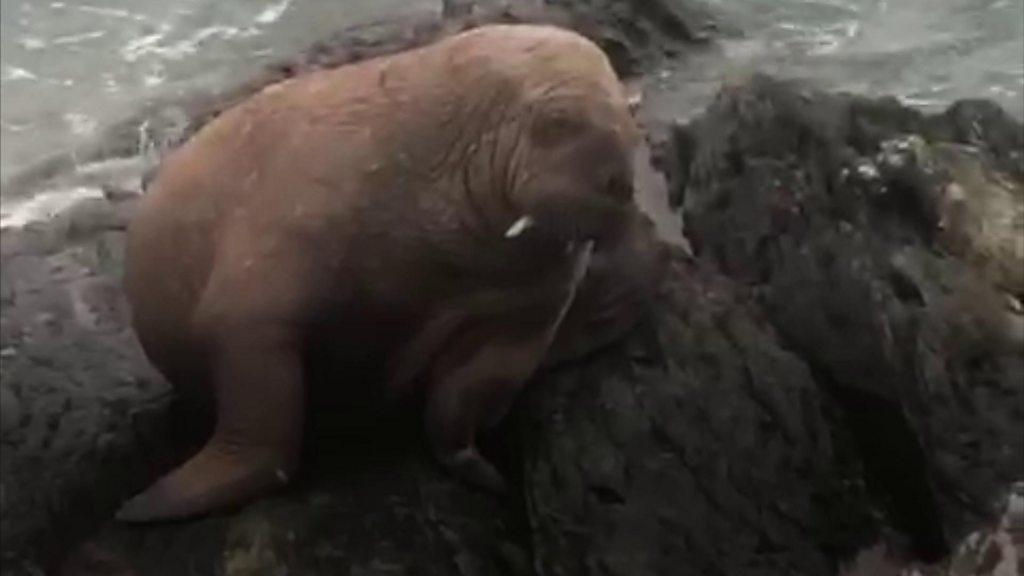Isles of Scilly: Pontoon built to help Wally the walrus rest
- Published
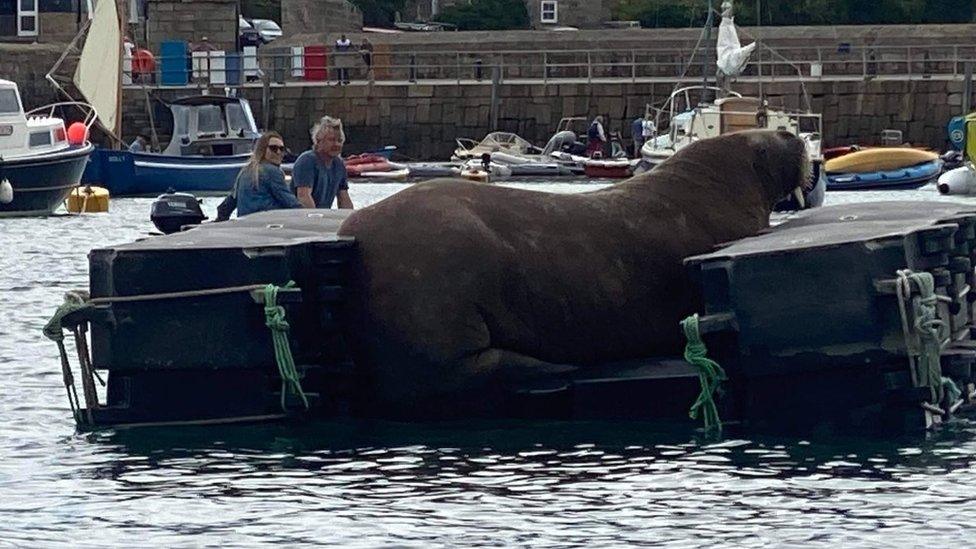
Wally's new pontoon is an attempt to create a "safe space" for him
A purpose-built pontoon has been made for a walrus visiting the Isles of Scilly in a bid to reduce damage he is causing and encourage him to leave.
The animal, nicknamed Wally, has sunk or damaged a number of vessels since arriving in June.
Experts said the platform in St Mary's harbour must become a "safe space" to stop him boarding boats.
Before going back to his native Arctic, they said "he needs to feed up and rest peacefully without interruption".
They also said people should not disturb him and keep a distance of at least 50-100m (165-330ft) away.
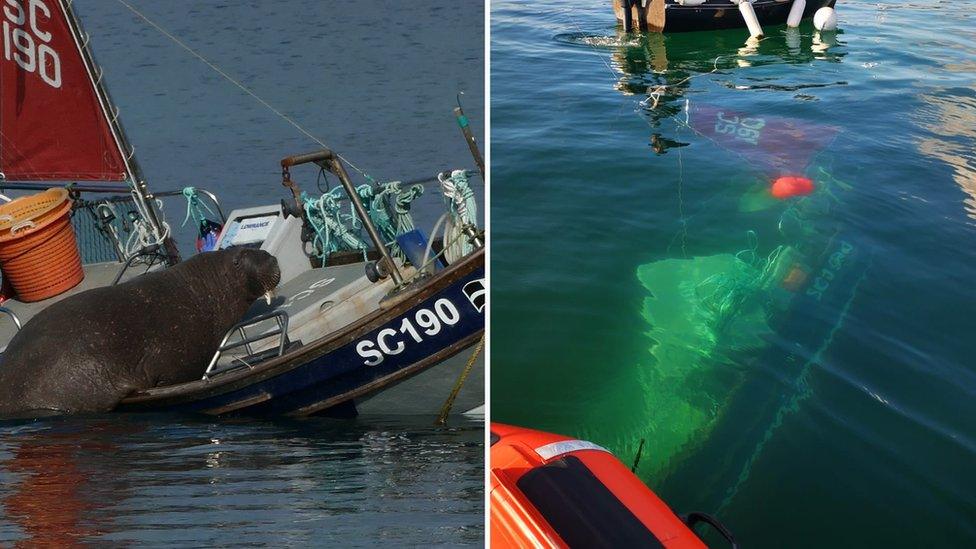
Wally has damaged vessels, including sinking a fishing boat
The walrus, thought to be about four years old and from a species more commonly found in the Arctic, has travelled about 2,500 miles (4,000km) along the coast of western Europe, including Spain, Wales and Cornwall over the last four months.
A number of working and pleasure boats on the islands of St Mary's and St Martin's have been sunk or damaged by him.
British Divers Marine Life Rescue, the Isles of Scilly Wildlife Trust, the Cornwall Seal Group Research Trust and the St Mary's Harbour Team have been involved in the pontoon's construction on the islands 28 miles (45km) off Cornwall.
They said it provides "something that he returns to, allowing him to rest, gain strength and ultimately leave Scilly to continue his journey home".
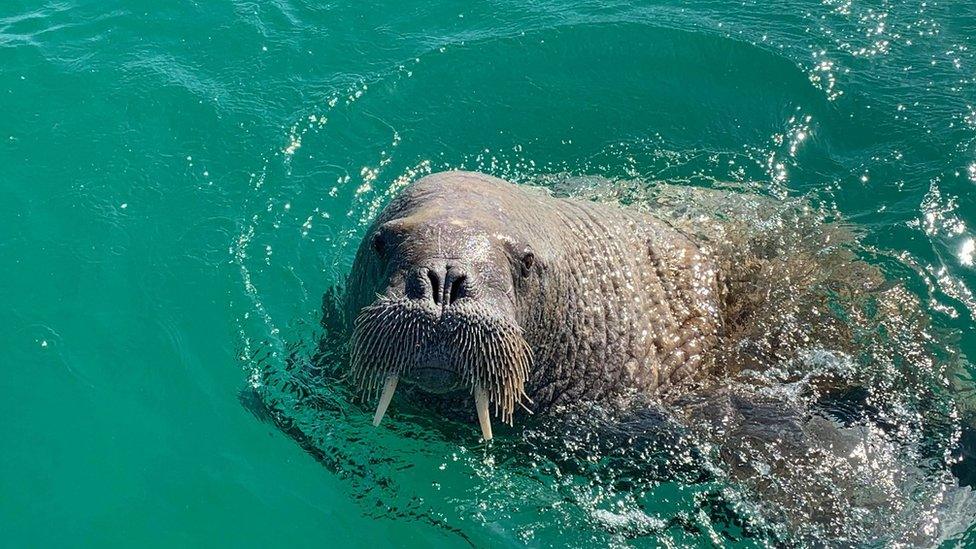
Wally's adventure has included stops in Ireland, Wales, Cornwall, France, Spain and now the Isles of Scilly
The group said walrus experts it had spoken to believed he was expected to "move on soon".
But it added: "He will only be able to do so if he has the energy to make the [1,990-mile] 3,200km journey home. This means he needs to feed up ... and rest peacefully without interruption.
"If he is continually distracted, he will not gain the weight and energy for a long journey home and will likely remain in Scilly longer.
"He is feeding well, but his rest is not consistently good."
In warning people to stay away from him, the statement said: "He has not shown any aggressive behaviour, but he is young and still a very large, wild animal."

Follow BBC News South West on Twitter, external, Facebook, external and Instagram, external. Send your story ideas to spotlight@bbc.co.uk, external.
Related topics
- Published25 June 2021
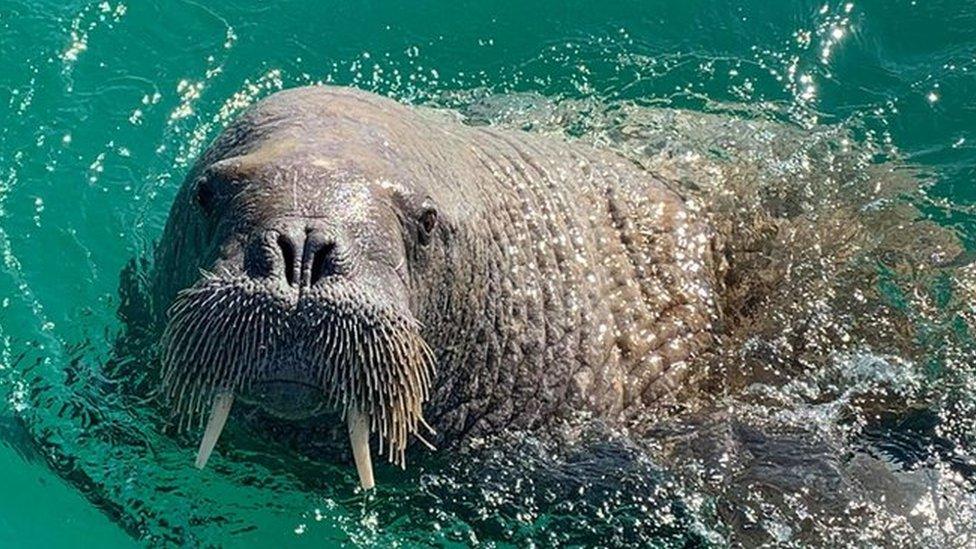
- Published18 June 2021
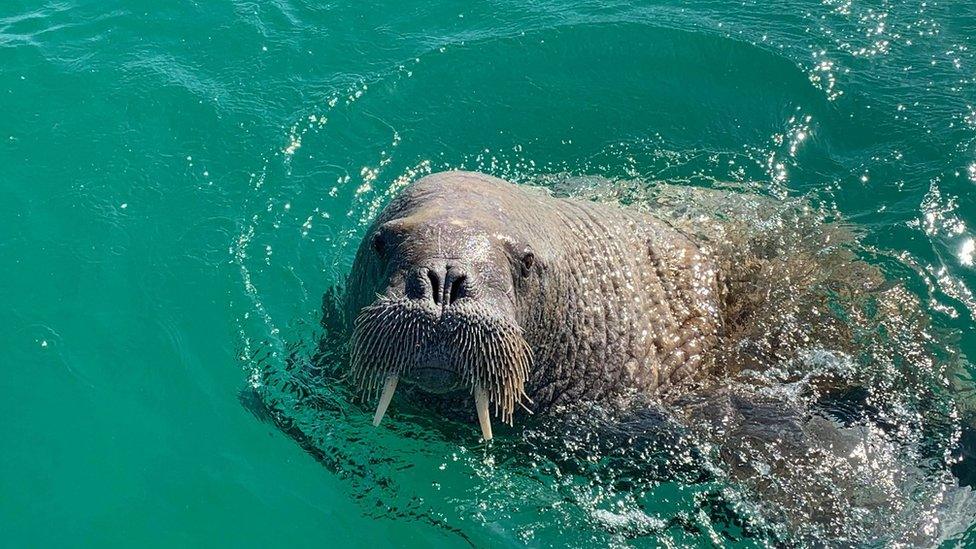
- Published28 May 2021
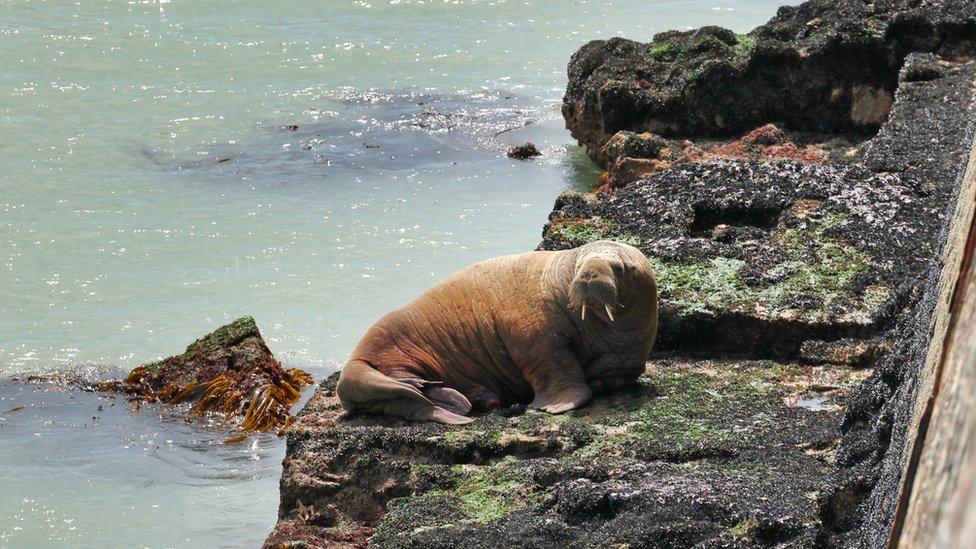
- Published21 May 2021
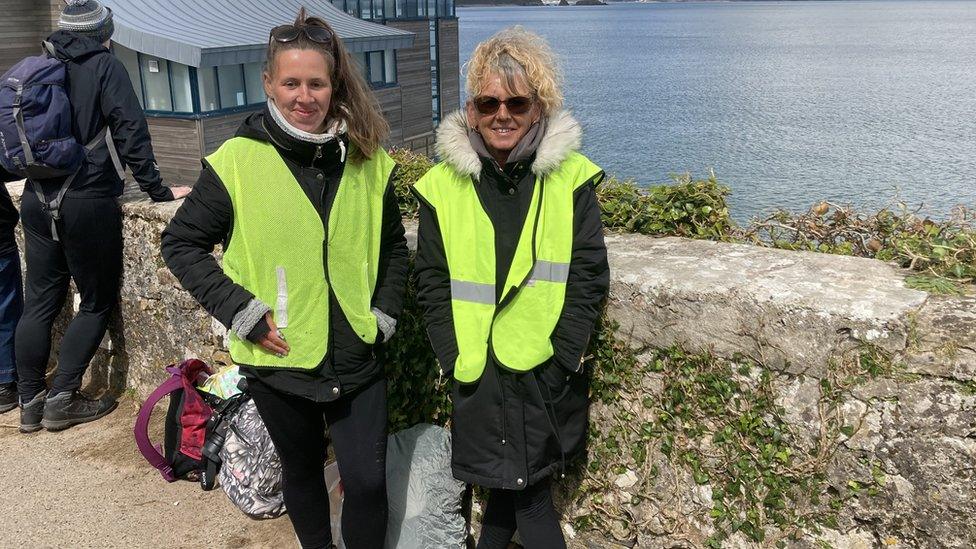
- Published20 May 2021
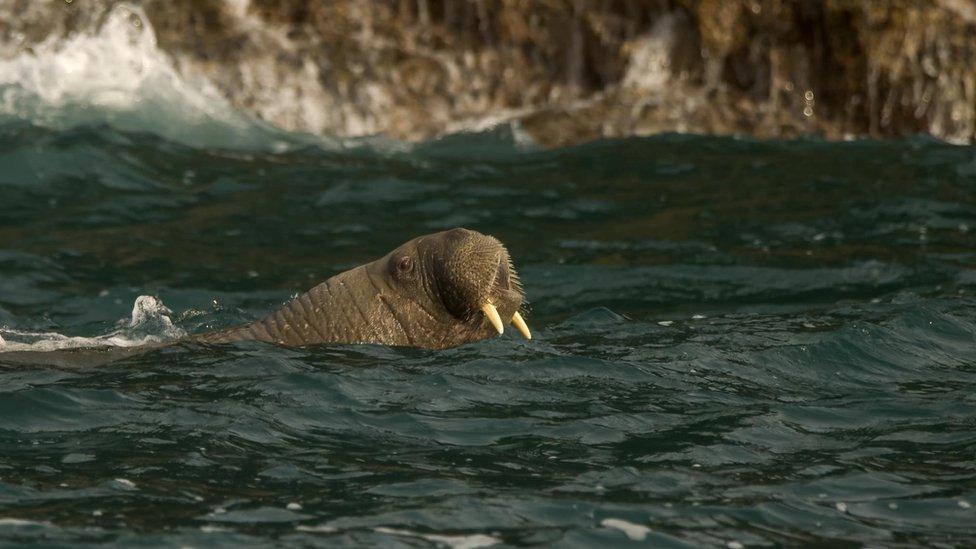
- Published15 March 2021
